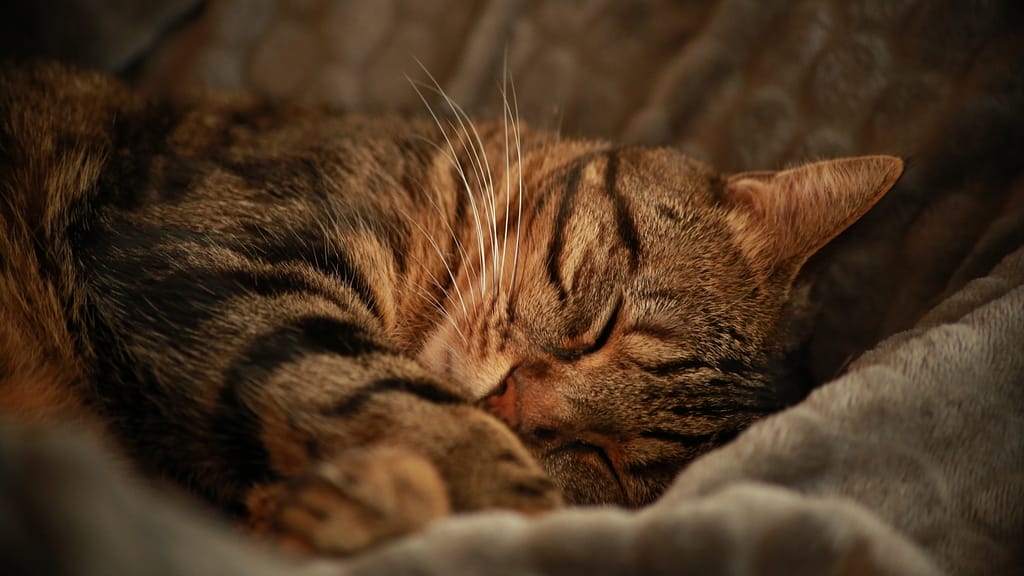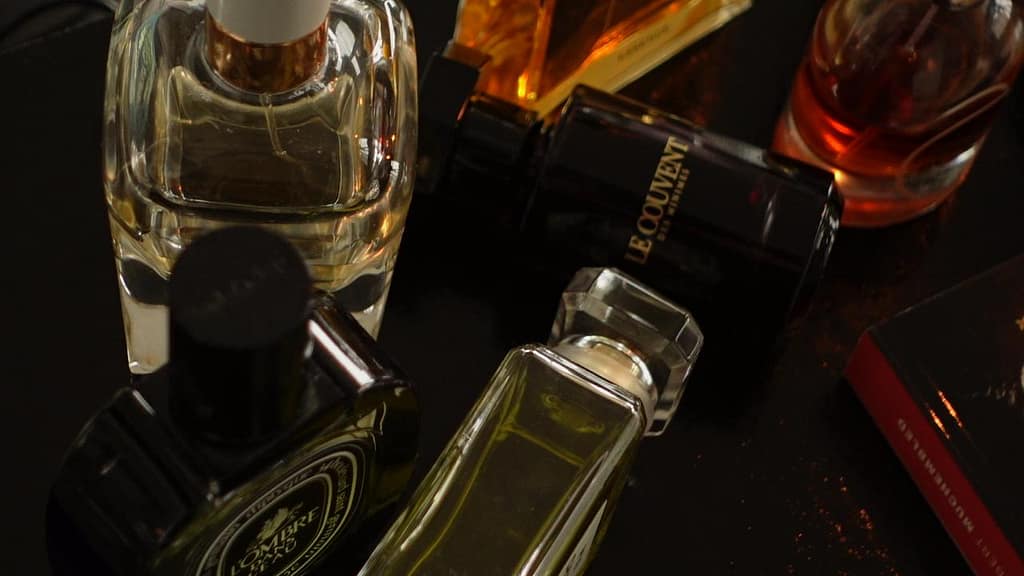Hello friends, and Happy Thanksgiving ! It’s been a while since my last video, but I am glad to be back and for such a joyful occasion, since this is my third annual celebration of nonfiction books I’m thankful for (if you’ve missed the past two years editions, watch the 2021 video HERE and the 2022 video HERE).
November has finally brought autumn here in Paris, after a seemingly never ending summer, and while I reinstate my cosy grotto of jazz and books, I turn, as always to scent, in order to create my perfect atmosphere.
Olfactory memory has always played a significant role in my life, and while I don’t think I’m gifted in any special way, I often surprise myself by recognising smells or flavours that are not easy to identify. But more than the satisfaction of a truffle finding dog, I find it easy to respond to scents in an emotional way, and sometimes, if I’m lucky, I get moved to tears with just one whiff of a special assemblage.
Through the years, my perfume collection has grown, my taste has evolved and I have gained a better understanding of my ever changing preferences. I’m not a signature scent kind of person, and while I do have all year favourites, most of my perfumes, like my reading, are seasonal.
For all of my themed videos, there is usually a happy “excuse” that brings the idea to life, and for this year’s ode to nonfiction, the theme of the scents or perfume was brought on by two such serendipitous events. The first being a special gift from my closest friends, who know me better than anyone, and who offered me the Romanian translation of Bill Hansson’s book Smelling to Survive: The Amazing World of Our Sense of Smell. Hansson is a Swedish neuroethologist, so you can expect to be a bit confused by all the science, but don’t give up too soon. This is your opportunity to understand not only how your own sense of smell works, but also to gain a deeper understanding of the natural world. From dogs to mice, carrier pigeons, fish or moths, the mechanisms of smell are infinitely interesting, and while the book might seem very detailed, it remains a readable version of a very complex subject. And the perfect first step into our perfumed reading ritual.
Once the science was clearer, it was time for me to dive into the history of scents, so I picked up Robert Muchembled’s La civilisation des odeurs, translated as Smells: A Cultural History of Odours in Early Modern Times. From being the least important of our senses, to becoming a prized asset in a world that markets smells as symbols of success, this is a historical and anthropological study of our mysterious olfactory sense. The chapters take you from the pestilential smells of the Middle Ages and Renaissance, through the religious imagery associated with foul odours, all the way to the evolution of perfume standards for women and the revolution of florals in the Western perfumery. If you’re a history fan, you won’t need further convincing, and if you simply enjoy perfume, this will open a whole dimension into the how and why we consume what we do today.
With the science and the history in check, it was time for the poetry. And this is where my second excuse to make this video comes in, when another dear friend suggested we dedicate one of our museum dates to the latest exhibition of the Arab World Institute in Paris, Perfumes of the Orient. The exhibition is designed as an intimate stroll through different spaces, discovering the raw materials in nature, then through the streets of a town, and lastly inside a home. The historic pieces are perfectly put into context, but what took my breath away, pun intended, were the inventive scented devices that made this such a unique experience. My friend appreciated the highly educational structure of the exhibition, and I must agree, from the basic ingredients, to the techniques of extracting and blending them, everything was not only explained but exemplified. Take this composition table for instance. You always hear of top, heart and base notes, but the role that each one plays in the final result remains quite abstract. Here you had three fragrances explained by decomposing them. First you smelled the base, then the heart note was added, and finally the top note completed the picture. I took breaks and made the circuit several times, and each time I sensed something more. A brilliant experience for the novice as well as the connaisseur, so if you’re in Paris before March 17, 2024, I highly recommend it !
The gift shop of the museum had a few more surprises in store, so I left with a small treasure that proved to be the unexpected gift of this nonfiction November.
I first heard of Jean-Claude Ellena years back, when I discovered the niche brand of Couvent des Minimes (now rebranded Le Couvent Parfums with him as Olfactory Creation Director), so I knew he was a famous perfume composer, as he often enjoys saying. You can imagine my excitement when I found two of his non-fiction, and a novel, all dedicated to perfumery.
His introduction into the world of perfume, simply called Le Parfum in French, and translated as Perfume: The Alchemy of Scent, is already a few steps away from the science, towards the universe of a parfumeur, or a nose as they call it in the profession. His way of telling the story of a perfume, of tracing the different styles that defined fragrance in the XXth century, of explaining not only the creative process but also the strict rules of the industry, is simply fascinating for me.
And then I took a few more steps and dove into The Diary of a Nose: A Year in the Life of a Parfumeur. This was one of my most memorable reads of the year, an infusion of creative inspiration, of enthusiasm and admiration for Ellena’s personal universe. Some daily entries are pure poetry on fragrance, others are windows into his creative process, reading impressions or travel snapshots, all of the elements that compose the universe of an artist. Mandatory read for any creative as a reminder that inspiration is nourished by all your senses and your curiosity.
In passing, I want to mention his novel La note verte, not translated to my knowledge, in which he continues to give insights into the world of perfumery, through a few characters and a simple plot, that have the merit of illustrating the never ending evolution of the perfume industry, torn between business, ethics and art.
Two last recommendations for the French speaking readers. Flammarion have put together this compact ABC of perfume that could make a perfect gift for the interested teenager or any enthusiast for that matter. The illustrations make it more entertaining, and you generally spend a pleasant moment flicking through it.
And then the mammouth that is Elisabeth de Feydeau’s Loving dictionary of perfume. The Loving dictionary series from the publishing house Plon is a vast collection of themed essays around a multitude of subjects. In this one, historian and perfume expert Elisabeth de Feydeau puts together a very personal yet extensive compendium of perfume related terms, be they ingredients, iconic fragrances, parfumeurs and public personalities closely related to the world of scent, brands that have made history in the perfume industry or concepts from society that influence the world of fragrances. Her choices are bold, her views are condensed essences of each word she considered to be a key piece in the puzzle that is the art of perfume. I wish I could be more disciplined and read it as I would any other book, but ever since I got it two years ago, I dip into it every once in a while and read a word or two, so I will probably never finish it, and that’s perfect for me.
My nonfiction November had a very special feel to it, and I can genuinely say that I am thankful for each and every one of these books, they have brought me closer to a subject so dear to my heart. Many of these books are rooted in the French culture, but if you would like to broaden the points of view, I recommend having a look at The Institute for Art and Olfaction’s YouTube channel, you can access it HERE. They have many interviews with American and International perfume creators, as well as themed videos and some recorded conferences on the subject.
It goes without saying that any recommendations of books on the subject of scents and perfumes are welcomed, so I’ll be seeing you in the comments on YouTube.
Until next time, enjoy your reading and your rituals !
If you would like to support The Ritual of Reading, please consider purchasing your books from the Bookshop.org dedicated site by clicking the link below. You get to support local bookstores and I make a small commission with every purchase. Thank you !















